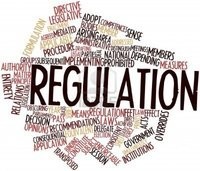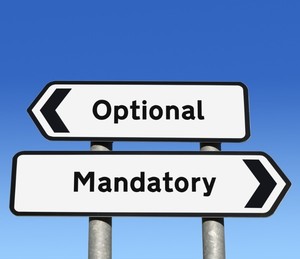The US Food and Drug Administration (FDA) has issued new draft guidance for biosimilars. The draft guideline, issued in May 2014, explains how to use clinical pharmacology data to show biosimilarity to a reference product.
The draft guidance pertains to those products such as therapeutic biological products, for which pharmacokinetic (PK) and pharmacodynamic (PD) data are required as part of a stepwise approach to developing the data and information necessary to support a demonstration of biosimilarity.
FDA defines biosimilarity to mean that the biological product is ‘highly similar to the reference product notwithstanding minor differences in clinically inactive components’ and that there are ‘no clinically meaningful differences between the biological product and the reference product in terms of the safety, purity, and potency of the product’.
The agency goes on to say that clinical pharmacology studies are normally a critical part of demonstrating biosimilarity by supporting a demonstration that there are no clinically meaningful differences between the proposed biosimilar and the reference product.
The use of specific assays and analytical methods is explained at length in the guidance. The design of pharmacological studies is also explained in some detail. FDA also points out that exposure and response assessment, evaluation of residual uncertainty and assumptions about analytical quality and similarity are three key concepts in the use of pharmacology studies to support biosimilarity. Highlighting that comparative analytical characterization may lead to one of four assessments:
Not similar: Further development through the 351(k) regulatory pathway is not recommended unless, for example, modifications are made to the manufacturing process for the biosimilar.
Similar: Additional analytical data or other studies are necessary to determine if observed differences are within an acceptable range to consider the biosimilar to be highly similar to the reference product.
Highly similar: The biosimilar meets the statutory standard for analytical similarity. The results of the comparative analytical characterization permit high confidence in the analytical similarity of the biosimilar and the reference product, and it would be appropriate for targeted and selective animal and/or clinical studies to be carried out to resolve residual uncertainty and support a demonstration of biosimilarity.
Highly similar with fingerprint-like similarity: The biosimilar meets the statutory standard for analytical similarity based on integrated, multi-parameter approaches that are extremely sensitive in identifying analytical differences. The results of these fingerprint-like analyses permit a very high level of confidence in the analytical similarity of the biosimilar and the reference product, and it would be appropriate for the sponsor to use a more targeted and selective approach to conducting animal and/or clinical studies to resolve residual uncertainty and support a demonstration of biosimilarity.
The draft guideline on pharmacology data for biosimilars follows the publication of several other biosimilar draft guidance documents [1, 2].
Clinical pharmacology data to support a demonstration of biosimilarity to a reference product
Date: May 2014
http://www.fda.gov/downloads/Drugs/GuidanceComplianceRegulatoryInformation/Guidances/UCM397017.pdf
FDA is seeking public comment on the draft guidance document. Comments and suggestions should be submitted within 90 days of publication in the Federal Register.
Related article
US guidelines for biosimilars
References
1. GaBI Online - Generics and Biosimilars Initiative. FDA finally issues draft biosimilar guidance [www.gabionline.net]. Mol, Belgium: Pro Pharma Communications International; [cited 2014 May 16]. Available from: www.gabionline.net/Guidelines/FDA-finally-issues-draft-biosimilar-guidance
2. GaBI Online - Generics and Biosimilars Initiative. FDA issues draft guidance for biosimilar meetings [www.gabionline.net]. Mol, Belgium: Pro Pharma Communications International; [cited 2014 May 16]. Available from: www.gabionline.net/Guidelines/FDA-issues-draft-guidance-for-biosimilar-meetings
Permission granted to reproduce for personal and non-commercial use only. All other reproduction, copy or reprinting of all or part of any ‘Content’ found on this website is strictly prohibited without the prior consent of the publisher. Contact the publisher to obtain permission before redistributing.
Copyright – Unless otherwise stated all contents of this website are © 2014 Pro Pharma Communications International. All Rights Reserved.








 0
0











Post your comment